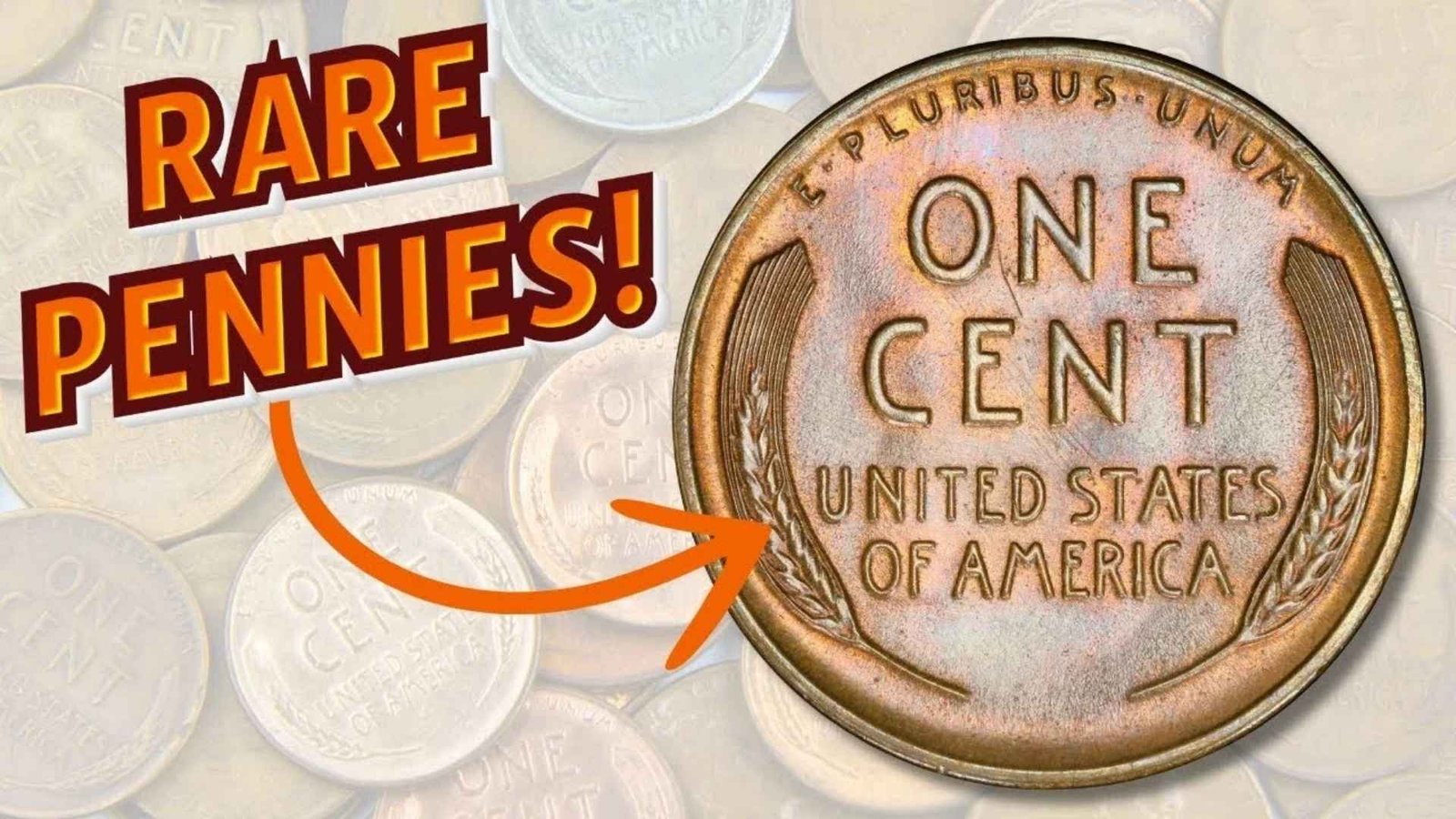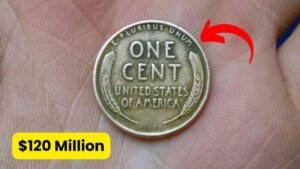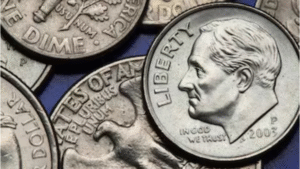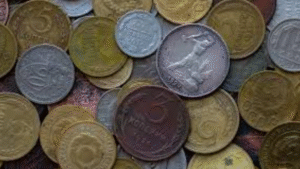Somewhere in circulation, a humble Lincoln Wheat Penny might be hiding a jaw-dropping secret — a staggering $2.2 billion value. Could an ordinary-looking coin really be worth more than a private island? Collectors are buzzing, and what you’re about to learn might have you checking your change with new eyes.
What Is the Lincoln Wheat Penny?
The Lincoln Wheat Penny, minted from 1909 to 1958, is one of America’s most iconic coins. Named for its wheat stalk reverse, it symbolized prosperity and was the first US coin to feature a real person — President Abraham Lincoln. Millions were minted, yet a few carry secrets that make them priceless.
The Mystery Behind the $2.2 Billion Penny
Rumors of a Lincoln Penny worth $2.2 billion trace back to whispers in the collector community about a one-of-a-kind error coin, possibly struck on a rare metallic planchet or during a transition year. While the exact penny has yet to surface, experts speculate it could combine historical rarity, unique error, and pristine condition — a perfect storm for astronomical value.
Why Could It Be So Valuable?
Rare coins derive value from scarcity, condition, and demand. If this mythical penny exists, it likely checks all three boxes. Numismatists point to examples like the 1943 Copper Wheat Penny, which sold for over $1.7 million, showing how small mistakes can create multimillion-dollar treasures. The $2.2 billion figure may seem outrageous, but in numismatics, history and hype can collide in unexpected ways.
Historical Background of the Lincoln Penny
The 1909 Lincoln Wheat Penny marked the 100th anniversary of Lincoln’s birth. Designed by Victor D. Brenner, its “VDB” initials created early controversy and were briefly removed, making 1909-S VDB coins among the most coveted. Over decades, minting errors — from doubled dies to off-metal strikes — have produced some of the rarest coins in American history.
Notable Rare Lincoln Pennies & Their Values
| Coin Type | Year | Notable Feature | Estimated Value |
|---|---|---|---|
| 1909-S VDB Wheat Penny | 1909 | Low mintage, initials VDB | $1,000 – $3,000 |
| 1914-D Wheat Penny | 1914 | Key date, Denver Mint | $2,000 – $15,000 |
| 1922 No D Wheat Penny | 1922 | Missing Denver Mintmark | $500 – $5,000 |
| 1943 Copper Wheat Penny | 1943 | Struck on bronze planchet | $1.7 million |
| 1955 Doubled Die Penny | 1955 | Strong doubling error | $10,000 – $50,000 |
| $2.2 Billion Penny | ???? | Mystery error, unknown mint | $2.2 billion (?) |
Could It Still Be in Circulation?
Yes — at least, that’s what keeps collectors searching. Since millions of Wheat Pennies remain in circulation, rolls, and private collections, the idea that a record-breaking specimen is still out there fuels endless fascination. You could find a fortune sitting quietly in your coin jar or pocket change.
How to Identify a Rare Lincoln Penny
To spot a valuable Wheat Penny, look for these clues:
- Check the Date & Mintmark – Coins from 1909-S, 1914-D, and 1922 are highly sought after.
- Inspect for Errors – Look for doubled dies, off-center strikes, or unusual metal color.
- Weigh It – A 1943 penny struck on copper instead of steel weighs differently — a key giveaway.
- Examine Condition – Uncirculated, mint-state coins can skyrocket in value.
Quick Collector’s Checklist
| Step | What to Look For | Why It Matters |
|---|---|---|
| Date & Mintmark | 1909-S, 1914-D, 1922, 1943 | Key years & rare mints |
| Metal Type | Copper or steel anomalies | Identifies minting errors |
| Lettering Details | Doubling, missing letters | Sign of error strikes |
| Condition Grade | Shiny, uncirculated, full lines | Increases resale value |
| Certification | PCGS or NGC grading | Ensures authenticity |
Expert Insights from Numismatists
Experts stress the importance of authentication and grading. With internet myths spreading fast, not every “rare penny” is what it seems. Always verify through reputable grading services like PCGS or NGC before celebrating your discovery. Still, as long as Wheat Pennies exist, the hunt for the $2.2 billion coin will continue.
FAQs
Q: Does a $2.2 billion Lincoln Penny really exist?
A: Its existence remains unconfirmed, but the legend inspires collectors to search relentlessly.
Q: What is the most valuable confirmed Lincoln Penny?
A: The 1943 Bronze Penny, which sold for over $1.7 million.
Q: Where should I sell a rare penny?
A: Certified auction houses or trusted coin dealers ensure top value.
Q: Can I still find Wheat Pennies in circulation?
A: Yes, especially in older rolls, estate collections, and bank boxes.
Conclusion: The Billion-Dollar Mystery in Your Pocket
Whether the Lincoln Wheat Penny worth $2.2 billion truly exists or not, its story captures the imagination of collectors worldwide. It reminds us that ordinary coins can hide extraordinary value. So next time you empty your wallet, take a second look — your spare change might hold a billionaire’s secret.




